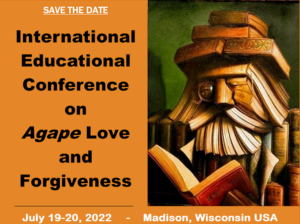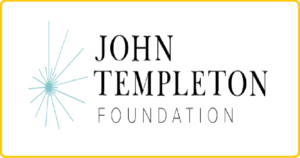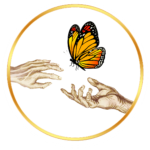Tagged: “Anger”
Is forgiveness the same thing in all cultures and times?
We talk about forgiveness as if it has universal meaning, but should we be talking about early 21st Century forgiveness in Western cultures, rather than a generic “forgiveness?” Should we presume that forgiveness is not the same everywhere and across all time of human history?
Although there are wide cultural and religious differences among the Hawaiian family ritual of Ho-O-Pono-Pono, the discipline of forgiveness in the Jewish customs of Yom Kipper, and the sacrament of Penance within Catholicism, this does not mean that each is dissimilar at the core. The behaviors manifested in these three kinds of forgiveness differ, but all three are concerned about confronting injustice with love. All three acknowledge that there is right and wrong; all three acknowledge resentment or some kind of moral response to wrong; and all three see forgiveness as a merciful response of goodness toward the offender(s). At their core, these three seemingly disparate cultures and/or religions share much in common.
Across time, we have ancient stories of forgiveness that do not differ from the present day. In Hebrew writings, there is Joseph forgiving his brothers, and we see an unconditional, merciful response to their injustices against him. In Christian scripture, there is the father of the prodigal son offering him acceptance and love in the face of injustice. In Muslim writings there is a parallel story to Joseph, also showing mercy in the face of wrongdoing. Hindu, Buddhist, Confucian, and other ancient literature are more alike than different in describing what forgiveness is. The preserved meaning has not changed to this day.
Might we come across a culture that defines forgiveness very differently than those above? Might we come across a culture that condemns forgiveness as unnecessary or unimportant? Perhaps, but it seems just as likely to find a culture that de-values justice and honors cheating and lying and murder. No such culture to date has been found. While it is true that different cultures might give different examples of what constitutes a just action, all cultures honor just action.
Is forgiveness the same thing in all cultures and times? Despite wide cultural nuances, it appears to be so.
I know that to forgive, I must confront my anger toward the person who hurt me, but to be honest with you, I fear my anger, I fear that I could get out of control because the person who hurt me was very cruel, over and over again, I do not like fearing myself. Please help me to overcome this.
First you should realize something very positive: You are aware that you are very angry. Some people deny the extent of their anger, which does not help in cleansing oneself of it. After all, how can you reduce the anger if you are minimizing it? If you have a deep cut on your arm and you are afraid of infection, what do you do? If your fear freezes you to such an extent that you cannot clean the wound and apply an anti-biotic, then that fear is preventing healing. It is similar with injustices and anger. Fear of the anger is the problem more so than the anger is the problem.
Please keep in mind that you do have available to you a kind of cleansing agent, a kind of anti-biotic against toxic anger, and it is forgiveness. As you practice forgiveness, you will see that the anger diminishes. Even if it returns, you have forgiveness to help you once again. As you become better at forgiving, you will fear your negative emotions less because you now have at your disposal a powerful antidote to them. Enjoy the cleansing power of forgiveness.
If a person begins to forgive and then decides that he is no longer ready, is it OK to slow down or even stop the process? If I did that, I feel that it would be unfair to the person who is asking to be forgiven.
There are two issues here. The first is the offended person’s forgiveness process and the other is the feelings and needs of the one who wants to be forgiven. The first issue is basically care of the self, which we have to do. As long as the one forgiving is slowing down or stopping for a good reason, then it is fine to back off, rest, and try to gain strength before pressing on to forgive. Forgiveness is hard work. A reason that is not good is this: slowing down the process to frustrate the other person. This, of course, would be revenge, which is not even close to the process of forgiveness. So, slowing down or stopping for now can simply show the forgiver how hard it is to sustain this virtue.
The second issue concerns the needs of the one who wants forgiveness. Again, we are presuming a good reason for the forgiver’s slowing down. Under this circumstance, it is part of the offending person’s bearing the pain in waiting. There are no guarantees once a person asks for forgiveness and so part of that process is to have patience and to give the forgiver a chance to grow into a forgiving response. The waiting can be painful, but if endured for the sake of the forgiver, it can lead to forgiving, receiving the forgiveness, and reconciling.
The Good Old School Days
OK, everyone, it is time to reflect on those good old school days of yore, those care-free days when everyone thought we did not have a care in the world. Yet, sometimes we carry burdens from those days and we do so in the silence of our own hearts. When was the last time that you, as an adult, had a discussion about your days in elementary, middle, or high school? When was the last time you had such a discussion with an emphasis on the emotional wounds you received back then? I am guessing that such discussion-times have been quite rare.
I wonder how many of you reading this still have some unresolved issues from the good-old-days. It is in school, within the peer group, at recess, on the sports team that our current sense of self is shaped, at least to a degree. Sometimes we are influenced by those days to a greater extent than we realize.
So, it is time for a little quiz. Please think about your days in school and see if you can identify one person who was unjust to you, so unjust that when you think about the person now, it hurts. This person is a candidate for your forgiveness. I have an important question for you: How has this person inadvertently influenced your own view of yourself? How has this person’s actions made you feel less than who you really are? Do you see that it is time to change that?
My challenge to you today is to take steps to forgive the person for those behaviors long ago that have influenced you up to this very moment. It is time to take a better look at what happened, to forgive, and then to ask the question after you forgive: Who am I now as I admit to the injustice, admit to it negatively influencing how I have seen myself all these years, and who am I now as I stand in forgiveness?
Perhaps the good old days will seem a little brighter once you forgive. You will have lifted a silent burden.
Robert
JOIN US! International Educational Conference on Agape Love and Forgiveness
A research project focusing on agape love and forgiveness, now underway in three culturally distinct areas of the world, will culminate next summer with an international educational conference to be held in Madison, Wisconsin. The conference will be hosted by the International Forgiveness Institute (IFI)—the nonprofit organization founded in Madison 27 years ago. The research is being conducted by researchers at the University of Wisconsin-Madison.
distinct areas of the world, will culminate next summer with an international educational conference to be held in Madison, Wisconsin. The conference will be hosted by the International Forgiveness Institute (IFI)—the nonprofit organization founded in Madison 27 years ago. The research is being conducted by researchers at the University of Wisconsin-Madison.
Working with elementary school children in Northern Ireland, Israel (both Arabic- and Hebrew-speaking schools), and Taiwan, the research is being funded by the John Templeton Foundation which has been supporting research on forgiveness for more than 20 years. The Foundation’s p rimary goal is “to ignite a global conversation on forgiveness to help everyone experience its benefits and to increase the visibility and funding of forgiveness innovations.”
rimary goal is “to ignite a global conversation on forgiveness to help everyone experience its benefits and to increase the visibility and funding of forgiveness innovations.”
The 3-year project was developed by and is being conducted under the direction of Dr. Robert Enright, co-founder of the IFI and a professor of educational psychology at the University of Wisconsin-Madison. Its principal focus is on incorporating agape love fundamentals with Dr. Enright’s Forgiveness Curriculum materials for 5th grade students.
“Agape love is drawn from Greek tradition and is the highest expression of forgiveness toward those who caused pain,” Dr. Enright explains. “I call it the ultimate form of love—the kind of love that has never before been scientifically examined as part of forgiveness research.”
 The research portion of the agape love and forgiveness education project will continue through most of this school year with 60 teachers and up to 1,200 students at the experimental sites. Some of those educators will outline their experiences and present their findings during the July 19-20, 2022 International Educational Conference on Agape Love and Forgiveness at the University of Wisconsin-Madison campus.
The research portion of the agape love and forgiveness education project will continue through most of this school year with 60 teachers and up to 1,200 students at the experimental sites. Some of those educators will outline their experiences and present their findings during the July 19-20, 2022 International Educational Conference on Agape Love and Forgiveness at the University of Wisconsin-Madison campus.
A new website that was created specifically for this Templeton Foundation project was recently launched with an abundance of information about agape love, forgiveness education, and the Conference. The website will serve as an ongoing platform where educators can access curricula and other teaching resources. It will also house all Conference presentations and education materials developed through the project. Visit the website: Agape Love and Forgiveness.
- Learn what agape love is and what makes it unique: Agape Love.
- Learn about the amazing benefits of Forgiveness Education.




